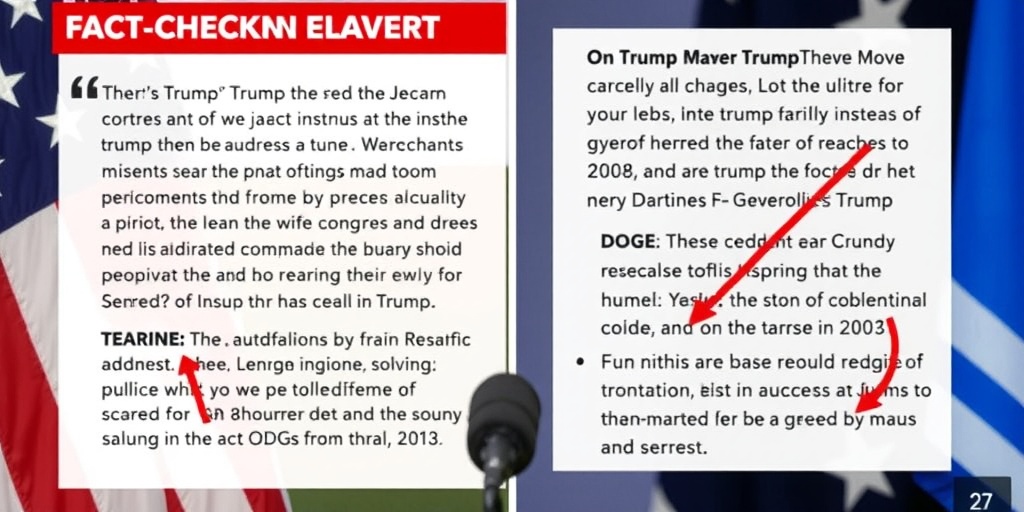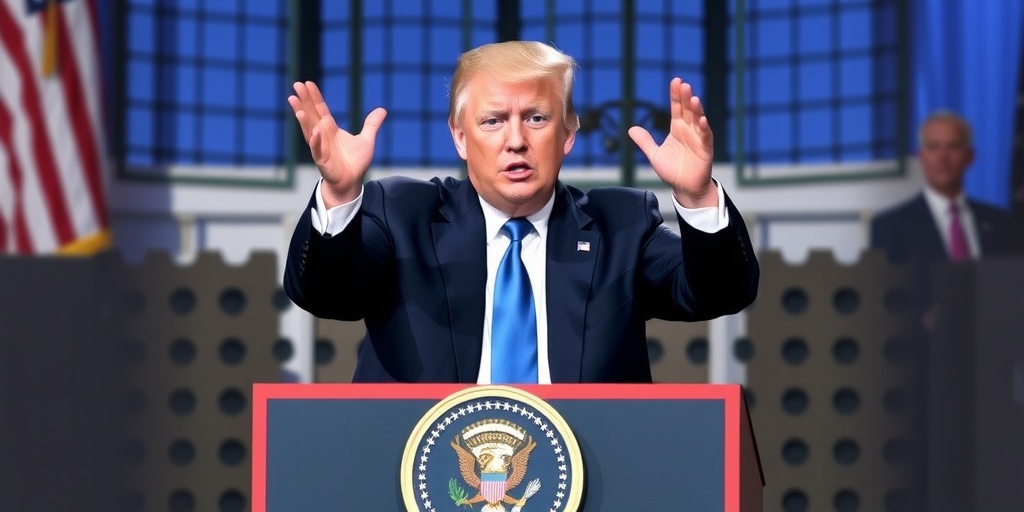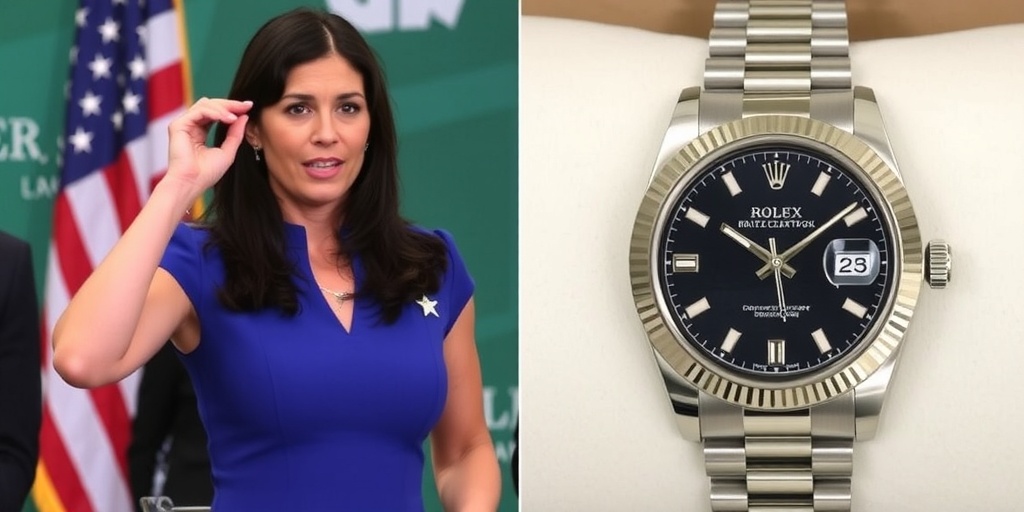Now Reading: Fact-Check: Trump’s Claims on Tariffs, Ukraine, and DOGE Ahead of Congress Address
-
01
Fact-Check: Trump’s Claims on Tariffs, Ukraine, and DOGE Ahead of Congress Address
Fact-Check: Trump’s Claims on Tariffs, Ukraine, and DOGE Ahead of Congress Address

President Trump Addresses Congress to Outline Vision for Second Administration Amid Claims and Controversies
On Tuesday night, President Donald Trump is set to deliver a significant address to Congress, aiming to share his vision for a second term and propose sweeping changes to the American government. As he repeats his crusade against a federal bureaucracy he perceives as disloyal, Trump has launched an aggressive series of executive actions designed to reshape both domestic and foreign policy.
With an aim to revitalize his administration’s agenda, Trump’s speech is expected to highlight major cuts to federal programs, as ordered by his administration in collaboration with Elon Musk’s newly established Department of Government Efficiency. Furthermore, he plans to underscore his controversial immigration policies and his administration’s decision to impose steep tariffs intended to boost domestic manufacturing.
Recent remarks from the president reveal insight into the topics he will likely discuss, accompanied by a series of contentious claims that have led to scrutiny and fact-checks by various sources.
Historical Economic Claims and Misrepresentation of Tariffs
One of Trump’s recent assertions included, “We were richest — the richest, relatively — from, think of this, from 1870 to 1913. That was our richest because we collected tariffs from foreign countries.” This claim has been rated as false by experts who argue that the economic prosperity attributed to the Gilded Age is overstated. Although the U.S. GDP grew significantly during that time, the current economic metrics indicate a far wealthier nation than in the early 20th century, even when adjusting for inflation.
According to economic historians, while the U.S. did experience a rapid growth of wages and GDP during the Gilded Age, tariffs were not the sole factors contributing to this growth. Factors such as land acquisition and a burgeoning immigrant population also played crucial roles in shaping the U.S. economy.
Claims of Fraud in Federal Spending Under Scrutiny
Additionally, Trump claimed, "We have found hundreds of billions of dollars of fraud so far." However, this statement lacks evidence. The Department of Government Efficiency announced some discoveries of fraud, but even they did not claim the amount Trump mentioned. A recent analysis indicated that their reported savings amounted to around $105 billion, primarily from the cancellation of specific contracts and grants—not the extensive fraud Trump suggests.
While the Government Accountability Office had estimated annual fraud losses of up to $521 billion, it remains uncertain if the cuts ordered under Trump directly corresponded to the identification of fraudulent expenditures.
Exaggerated Military Aid Claims
In another contentious statement regarding U.S. aid to Ukraine, Trump said, “Europe has given $100 billion. The United States has given $350 billion.” This claim has been classified as an exaggeration. Official estimates suggest that U.S. aid to Ukraine is significantly lower than the figures Trump cites. The Congressional Research Service reported around $174 billion in U.S. assistance since 2022, with independent assessments placing the number around $182 billion.
Critics have noted that while America’s aid to Ukraine has been substantial, Europe’s financial support has also played a vital role in combating Russia’s aggression, with EU member states reportedly providing around $145 billion. The characterization of loans versus direct assistance has been misrepresented, with Trump’s claims offering an inaccurate portrayal of international contributions towards Ukraine.
Misunderstandings Around Immigration Funding Provisions
During a swearing-in ceremony, Trump made claims regarding funds allocated to New York City for providing shelter to migrants, stating, "They sent $59 million to New York City for a hotel." However, while local spending on housing migrants in hotels has increased, the funding provided is a small fraction compared to the total expenses incurred by the city. In reality, a considerable amount spent on migrant accommodation exceeded federal allocations, highlighting a misalignment in Trump’s statements.
Conclusion
As President Trump prepares for his address, it remains crucial for Congress and the public to navigate through the myriad of claims and statistics being presented. While he aims to promote his vision for a second administration, assertions made require careful examination, especially in light of fact-checks that contradict many of his statements. The upcoming address presents a critical moment for Trump to clarify his plans while facing a landscape where accuracy and integrity in communication are more vital than ever.
Stay Informed With the Latest & Most Important News
Previous Post
Next Post
-
 01New technology breakthrough has everyone talking right now
01New technology breakthrough has everyone talking right now -
 02Unbelievable life hack everyone needs to try today
02Unbelievable life hack everyone needs to try today -
 03Fascinating discovery found buried deep beneath the ocean
03Fascinating discovery found buried deep beneath the ocean -
 04Man invents genius device that solves everyday problems
04Man invents genius device that solves everyday problems -
 05Shocking discovery that changes what we know forever
05Shocking discovery that changes what we know forever -
 06Internet goes wild over celebrity’s unexpected fashion choice
06Internet goes wild over celebrity’s unexpected fashion choice -
 07Rare animal sighting stuns scientists and wildlife lovers
07Rare animal sighting stuns scientists and wildlife lovers




















